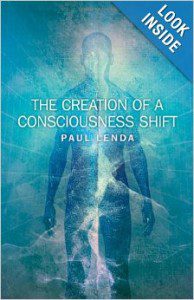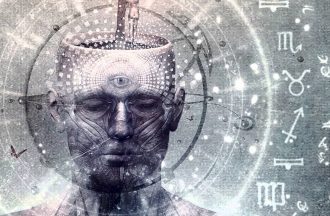By Paul Lenda
Guest writer for Wake Up World
“The limits of my language are the limits of my world.” ~ Ludwig Wittgenstein
Human beings perceive everything within their realities through the five basic senses of taste, touch, hearing, sight, and smell (we will limit this article to five when in reality there are upwards of 20). By experiencing the sensations of the reality around us, we create a subjective understanding of what reality is and how we perceive it to be constructed. According to the generally accepted evolutionary framework for the human race, language did not arise until very recently.
It’s a fairly novel aspect of the human experience that is so complex that it requires the utilization of more than one of the basic five human senses. Take a book for example. In it, there are words, and these words require the sense of sight in order to perceive what the thought-forms being expressed are conveying. If someone was reading that book to you, the sense of hearing would be necessary for understanding the thought-patterns being transmitted from the person reading the book to you. The reader of that book (in most cases) would also need to use the sense of touch in order to turn the page to the next stream of words that formulating another thought-form or continue a previous one.
This simple example is given to illustrate that language is a complex process that along with it brings tremendous power. This power is so strong that it can actually influence the way we think. George Orwell in his novel 1984 gave an example of language influencing thought with his use of the term doublespeak, which is language that deliberately disguises, distorts, or reverses the meaning of words… in effect changing what we think about a given subject or thought-form. Language can be an incredible tool for change, both positive and negative. It can be seen as being used to conquer entire nations and inspire untold billions. As linguist Benjamin Lee Whorf said, “language itself shapes a man’s basic ideas.”
The influence of language on how we think and perceive aspects of reality is so great that it can fundamentally alter our perception of the dimension we call time. The Hopi tribe in the Americas have no past tense for their verbs for instance, which would alter their perception of time in such a way that they would be not able to so readily think about the past. They focused on the present moment, since it is the only moment that will ever exist.
The altered perception of time is not the only way language influences how we think. Our very sense of self is also significantly altered… especially if a person is bilingual. Depending on which language a person who is bilingual is using, their sense of self changes. The differences may become so great as to alter their very personalities. I have seen this in action in my own self, since I am bilingual and I can notice that when I speak in Polish or think in Polish syntax, my personality takes on an almost ‘alter-ego’ of sorts.
Others who are bilingual report the same experience and it’s been demonstrated strongly in studies conducted in the 1990s and 2000s with Asian immigrants to North America. When they described themselves in English, their self-descriptions were usually Canadian (they expressed mostly positive self-statements and moods). When responding in Chinese, they were typically Chinese (they were in more agreement with Chinese values and had roughly equal the amount of positive and negative self-statements and moods). Their language use literally shaped how they thought of themselves.
By saying that language influences the way we think, it should be understood that this does not mean that it absolutely determines the way we think 100% of the time. Certain tribes in Papua New Guinea for example do not use language to communicate thought-forms and yet they seem to perceive things just as others do. Language certainly has a strong influence on how we think, however.
Using words such as ‘he’, ‘mankind’, and ‘god’ for instance, transmits a particular perception of concepts that are supposed to be all-encompassing while using words that are not. The generic use of these words is dangerous in that it can hinder a person’s understanding of the concept by limiting it to a particular category or construct. This is why other words (humanity, source, etc.) are better choices for the words noted earlier to describe the thought-forms in a more embracing and universal way. The very fact that there is no word in the English language for a genderless being (it is impersonal and therefore cannot be applied) demonstrates that there can be a hindrance or limit on one’s ability to perceive something in reality.
The power of language to influence thought makes vocabulary building a critical part of education. To expand language is to expand the ability to think. We can see this in children, whose thinking develops hand in hand with language. It helps a great deal to increase our ‘word power’ by introducing new words into our vocabulary (be they established words or neologisms that we have created) in order to teach new ideas and new ways of thinking. The increase in word power extends to those who lack the sense of hearing, thanks to the modern invention of sign language. Since its inception, sign language has allowed deaf people to become fully literate.
Whether we are deaf or not, language transforms experience and connects us to the past as well as the future. Language sparks imagination. Language connects us to one another. Be mindful of how important language is to our perception of reality and all its various aspects. You have nothing to lose and everything to gain. You can empower yourself beyond your present limitations, if they exist, and expand your awareness beyond the hindering boundaries of the lexicon of language.
Recommended articles by Paul Lenda:
- Survival of the Kindest: Evidence Mankind is Evolving to Become More Compassionate
- Let The Emergence of a New Humanity Begin!
- The Consciousness of Plants
- You Are The Infinite Explorer
- Where Do We Go From Here?
- 9 Ways to Spot a Fake Guru or Spiritual Teacher
- 9 Healing Benefits of Music
- The Ancient Esoteric Wisdom of the Hawaiian Huna Philosophy
- 8 Ways to Spot Emotional Manipulation.. and Free Ourselves From It
- 10 Ways to Shift Your Consciousness
- Astral Projection – Going Beyond the Astral Plane of Reality
- Reclaiming the Sovereignty of Our Minds
About the author:
 Paul Lenda is a conscious evolution guide, writer, speaker, workshop facilitator, life coach and celebrator of life wishing to provide an integral role in the personal and collective social transformation of humanity. Paul has degrees in business and psychology, a decade of extensive spiritual practice, a drive for esoteric knowledge and a desire to see and understand the wider horizon of Reality. Paul has spoken at various shows, events and locations and his articles have been published in magazines and journals around the world. Paul’s words will stir up a spirit of action and change, make you question the way you think, and challenge your perception of reality.
Paul Lenda is a conscious evolution guide, writer, speaker, workshop facilitator, life coach and celebrator of life wishing to provide an integral role in the personal and collective social transformation of humanity. Paul has degrees in business and psychology, a decade of extensive spiritual practice, a drive for esoteric knowledge and a desire to see and understand the wider horizon of Reality. Paul has spoken at various shows, events and locations and his articles have been published in magazines and journals around the world. Paul’s words will stir up a spirit of action and change, make you question the way you think, and challenge your perception of reality.
From adolescence onward, Paul became an active seeker of everything that was never taught by the established educational systems. By doing so, and by filtering our “the noise”, Paul was able to develop an extensive knowledge base to which he also applied diligent personal practice, verifying what resonated as functional and effective in the evolution and elevation of consciousness. By focusing on maintaining balance in all aspects of his life, Paul offers an approach to conscious evolution that ensures there is harmony in your quest for healing and growth.
Paul also offers private sessions, usually via Skype, for those looking to consciously evolve from where they are to where they envision themselves to be.
You can connect with Paul via:
- Online: Shift.is
- Facebook: Facebook.com/TheShiftIsNow
- Twitter: Twitter.com@PaulLenda
The Creation of a Consciousness Shift
A book by author Paul Lenda…
 Through the power of consciousness we are choosing our own reality, and with that, we have the opportunity to affect a global and transpersonal shift in consciousness that will elevate the human collective to a much higher level of being.
Through the power of consciousness we are choosing our own reality, and with that, we have the opportunity to affect a global and transpersonal shift in consciousness that will elevate the human collective to a much higher level of being.
Through The Creation of a Consciousness Shift, Paul shows that such a massive shift is possible.
Paul’s words will stir up a spirit of action and change, make you question the way you think, and challenge your perception of reality. In “The Creation…” Paul offers scientific evidence in support of his message transcendental self-growth, as well as several tools and methods you can use to help facilitate the biggest, most positive change humanity has ever seen – a global shift in consciousness.
“The Creation of a Consciousness Shift” is available here on Amazon and via Paul’s website, Shift.is

If you've found value in our articles, we invite you to support the release of our brand-new book, "Gratitude Practices for Kids: A Practical Guide for Adults to Instill a Spirit of Appreciation and Positivity in the Next Generation."
"Gratitude Practices for Kids" brings together over 25 innovative and accessible practices designed to enhance gratitude in everyday life. This comprehensive guide is backed by 17 scientific studies, ensuring each concept is grounded in research, underscoring our commitment to nurturing growth, emotional intelligence, and positive interactions between adults and children.
We encourage you to opt for the paperback version to celebrate this new release. Dive into its fresh pages away from digital distractions, allowing you to immerse yourself in the transformative practices it offers.
Over recent years, Wake Up World has faced significant online censorship, which has impacted our financial ability to operate. Moving into book publishing represents a strategic step to secure the ongoing funds needed to continue our mission. By purchasing Gratitude for Kids, you help us keep our content free and accessible to everyone, avoiding needing a paywall. With over 8,500 articles published in the last 13 years, we remain dedicated to keeping our valuable content open to all.








